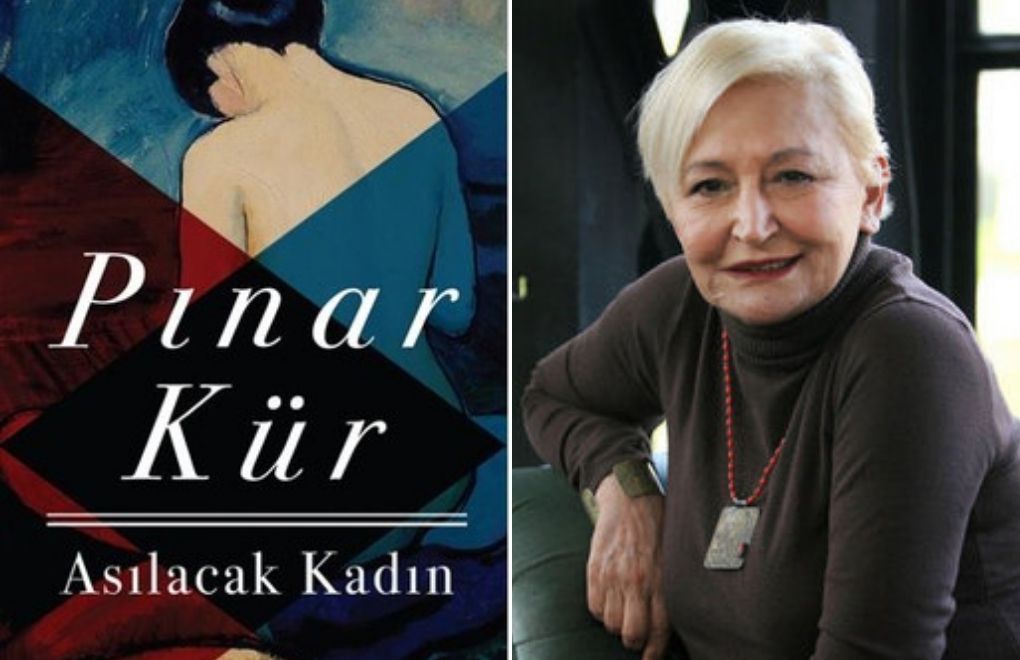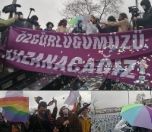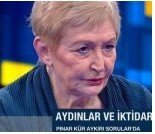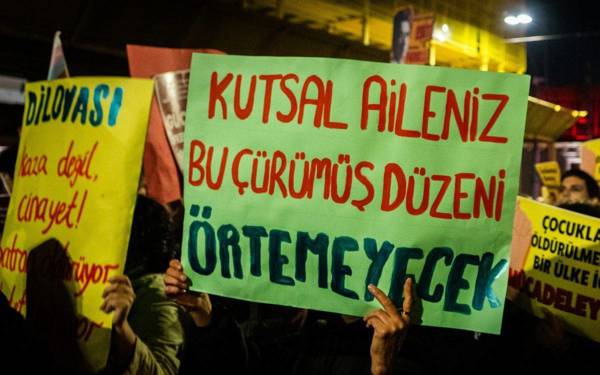Click to read the article in Turkish
In the aftermath of the military coup in 1980, her book "Yarın, Yarın" (Tomorrow, Tomorrow) was banned due to communism propaganda.
In the mid 1980s, her books "Asılacak Kadın" (Woman to be Hanged) and "Bitmeyen Aşk" (Unending Love) were banned as per the Obscene Publications Act, which was in force at the time.
Remembering those days, writer, translator and academic Pınar Kür says, "I felt as if they were taking my children away from me. None of them was published again until 1986. They were forgotten."
"But I did not forget them," she adds.
'Half of my books banned'
Ahead of March 8 International Women's Day, we speak with Pınar Kür, who focuses on women's problems in her works.
First of all, I am curious about this: Your novel "Yarın Yarın" was banned six years after it had been published. How did this process of ban affect you, both literally and psychologically?
My first novel... It 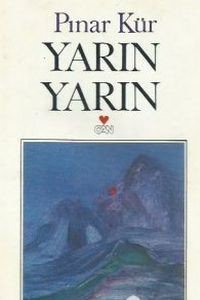 gained a sudden fame, which was not something I was expecting. It was published several times in six years.
gained a sudden fame, which was not something I was expecting. It was published several times in six years.
I was extremely happy. Then, the ban was imposed all of a sudden. I was like a fish out of the water. I was stunned, I mean; I was shocked by what happened.
Moreover, due to Article 141, which was in effect back then, a trial at the martial court was the case; one would face 5 to 15 years in prison.
To make matters worse, I had to go to the hearings to be held at the Selimiye Barracks in company with the police. The police in our neighbourhood, luckily, did not do his duty, telling me, "Will you go there on your own, right, sister?"
'I was acquitted, but worn out'
My commutes to Selimiye lasted for years. I was acquitted, but the Military Court of Cassation overturned it; then, I went there for another year.
In the meantime, two other books of mine, "Bitmeyen Aşk" (Unending Love) published in 1983 and "Asılacak Kadın" (Woman to be Hanged) published in 1979, were banned and taken off the shelves.
As they were put on trial for "obscenity" as per the Obscene Publications Act, the trial was held at the civilian press court.
As you see, I was tired of going back and forth to three separate trials for five years; I was acquitted in all of them, but worn out a lot. Half of the books I had written thus far were banned.
I felt like they were taking my children away from me. None of them was published again until 1986. They were forgotten. But I did not forget them. The name of my next book was "Bir Cinayet Romanı" (A Crime Novel).
'Women with a male eye on the decrease'
Considering that your books, especially "Asılacak Kadın" (Woman to be Hanged), were found obscene, it seems safe to say that it gives us an idea about the perspective on women...
Absolutely... Besides, .jpg) misogyny was not as apparent in those times as it is today. Not one woman was killed every day. But this perspective is always the same, it never changes, it gets even worse.
misogyny was not as apparent in those times as it is today. Not one woman was killed every day. But this perspective is always the same, it never changes, it gets even worse.
My only consolation is that the number of women "with the eyes of a man" has decreased considerably, if not all together. We can now talk about solidarity among women.
Women's problems
What drives you to write about inequality between women and men in your books? How do you come up with these texts?
One must be stupid to not see the gender inequality in the country. In fact, some men are shouting, "What equality are you talking about?"
What else should I do other than addressing this issue as a woman, as a mother and as a writer? The most bleeding wound of Turkey is still the atrocity against women. A woman writer who does not express this is not a literary figure or anything.
There is a powerful women's movement in Turkey today; they are on the streets, the most fragile points. What would you like to say about women's movement with your identity as a literary figure?
I care a lot about the women's movement.
It is really nice that it is quickly spreading among young people. I like it a lot when they raise their voices on the streets without fear. I believe that serious leaders will come out among them.
About Pınar KürWriter and translator. She spent her childhood in different provinces of Anatolia and in London. She went to the United States (US) at the age of 13 and lived there for five years. She went to the primary school and secondary school in Bursa and high school in New York. After graduating from the higher education section of the Robert College, she lived in France for five years. She did her PhD at the Comparative Literature Department of Sorbonne University; her PhD thesis was about "Reality and Illusion in the 20th Century Theater". Returning to Turkey, she worked as a playwright at Ankara State Theater for some time (1971-1973). She then moved to İstanbul and continued her works there. She did translations apart from her own stories and novels. She worked as a lecturer at the School of Foreign Languages of İstanbul University. After 1996, she worked at the Department of Media and Communication of İstanbul Bilgi University. Her first poem "Dalgalar" (Waves) was published in 1949. Her stories were published in several magazines and newspapers as of 1971. She gained fame with her novel "Yarın Yarın" (Tomorrow Tomorrow". This novel as well as her books "Asılacak Kadın" (Woman to be Hanged) (1979) and "Bitmeyen Aşk" (Unending Love) (1986), also adapted into films, were banned because they were found "obscene". She was acquitted after two years. She received the 1984 Sait Faik Story Award for the "Akışı Olmayan Sular" (1983). She did several translations from the British and French literature. "Short Fiction in English" edited by Kür was published by İstanbul Bilgi University Publishing in 2011. She worked as a faculty member at İstanbul Bilgi University. Some of her works are as follows: Yarın Yarın (1976), Küçük Oyuncu (1977), Asılacak Kadın (1979), Bitmeyen Aşk (1986), Bir Cinayet Romanı (1989), Sonuncu Sonbahar (1992), Beşpeşe (Bülent Erkmen, Celil Oker, Elif Şafak, Faruk Ulay ve Murathan Mungan ile, 2004). Bir Deli Ağaç (1981), Akışı Olmayan Sular (1983), Hayalet Hikâyeleri (2004). |
(EMK/SD)





